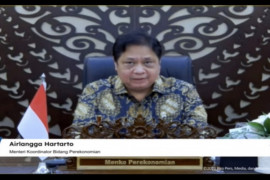LUCERNE, Switzerland, Mar. 30, 2011 (ANTARA/PRNewswire-Asia-AsiaNet) --
-- EF English First's English Proficiency Index reveals wide gaps in English skills across the world --
EF English First, the world leader in international education, today unveiled the first comprehensive index ranking the proficiency of English among a broad population in 44 countries and territories around the world where English is not the native language.
The EF English Proficiency Index (EF EPI) is the first index that compares the English ability of adults in different countries. The index uses a unique set of test data (see methodology) from over two million people across 44 countries who took free online English tests over three years (2007-2009).
Asia's performance was lower than expected especially in light of the amount spent on private English training. Moreover, although European countries tend to perform very well, Spain and Italy lag far behind others in Western Europe. EF's English Proficiency Index also shows an interestingly strong correlation between a country's English ability and its national income per head. There are also high correlations with levels of education and with export strength.
"In today's highly competitive global economy, English language proficiency is a basic skill and has never been more important for the entire workforce," said Bill Fisher, President of EF's online learning division Englishtown. Mr. Fisher added: "For developing countries to compete successfully in global industries and capitalize on the business outsourcing boom, the ability to produce large numbers of skilled graduates who are able to communicate in English, must be a top priority."
The full country results included in this inaugural index are at http://www.ef.com/epi/ef-epi-ranking/. For interactive graphs and more analysis, please visit: http://www.ef.com/epi/.
The 44 countries and territories represented in the inaugural EF EPI illustrate the wide range of English skills around the world today. Comparison of countries to their neighbors, trading partners and closest allies provides a fascinating study in divergent national priorities and educational policies across Europe, Asia and Latin America.
A few of the key findings for these regions include:
-- English proficiency in Asia is surprisingly low
Despite its British colonial legacy and reputation as an English-speaking nation, India is today no more proficient in English than rapidly improving China. Indeed although it is very difficult to estimate the number of English users in each country, today the two countries have an approximately equal number of English speakers, with China poised to surpass India in a few short years.
-- Spain and Italy lag behind Western Europe
Northern Europe is remarkably strong in English, containing all but one of the highest proficiency countries in the world - but this is not the whole picture. Today, over 90 percent of all students in Europe study English as part of their required schooling. In addition, many multi-national companies and factories in Europe have adopted English as their workplace language. However, proficiency in Spain and Italy is considerably lower than in other western European countries.
-- Spanish beats English as an international language in Latin America
Latin America is the weakest of all regions, with an average English proficiency score barely surpassing the low proficiency cutoff. In part this is explained by the importance of Spanish to the region. A shared language already allows for some international trade, diplomacy, and travel, possibly lessening the motivation to learn English.
-- Countries with higher English levels have higher gross national incomes per capita
The EF EPI shows a strong positive link income and English levels. This is a case of both cause and effect. Richer countries have more to spend on education-including English, the lingua franca of the global economy. In the longer term, more English education boosts average national income by improving economic opportunities.
Country Sites & Methodology
For additional details on select markets ranked in the EF EPI and for the study's complete methodology, please visit: http://www.ef.com/epi/
About EF English First:
English First is a division of EF Education First. Established in 1965 with the mission to "break down barriers in language, culture, and geography", EF is the world's leading international education company that has helped over 15 million students to learn a new language and travel abroad. With a network of 400 schools and offices worldwide, EF specializes in language training, educational travel, academic degrees, and cultural exchange programs. For more information please see www.englishfirst.com and www.ef.com .
Media inquiries, please contact:
Arleta Darusalam
Tel: +62-21-520-6477
Email: pr.indonesia@ef.com
SOURCE EF English First
Reporter: Adityawarman
Editor: PR Wire
Copyright © ANTARA 2011











